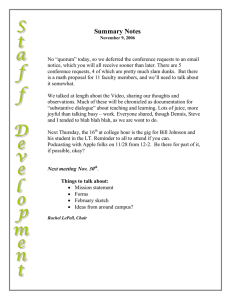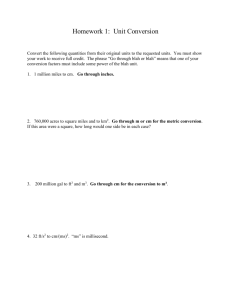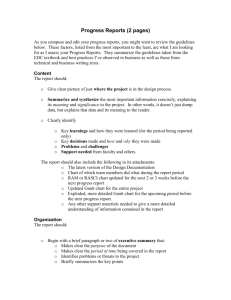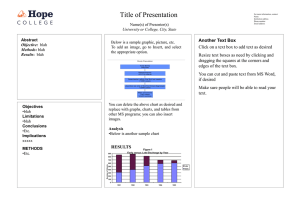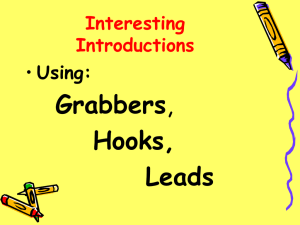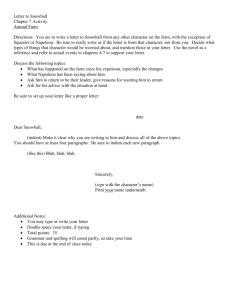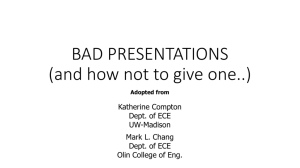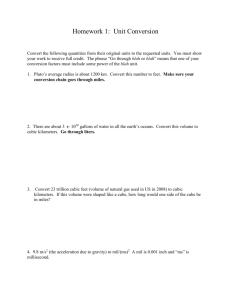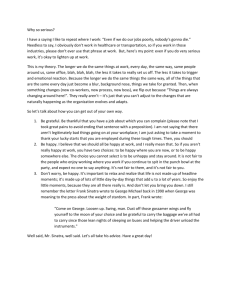Editor's last inch
advertisement
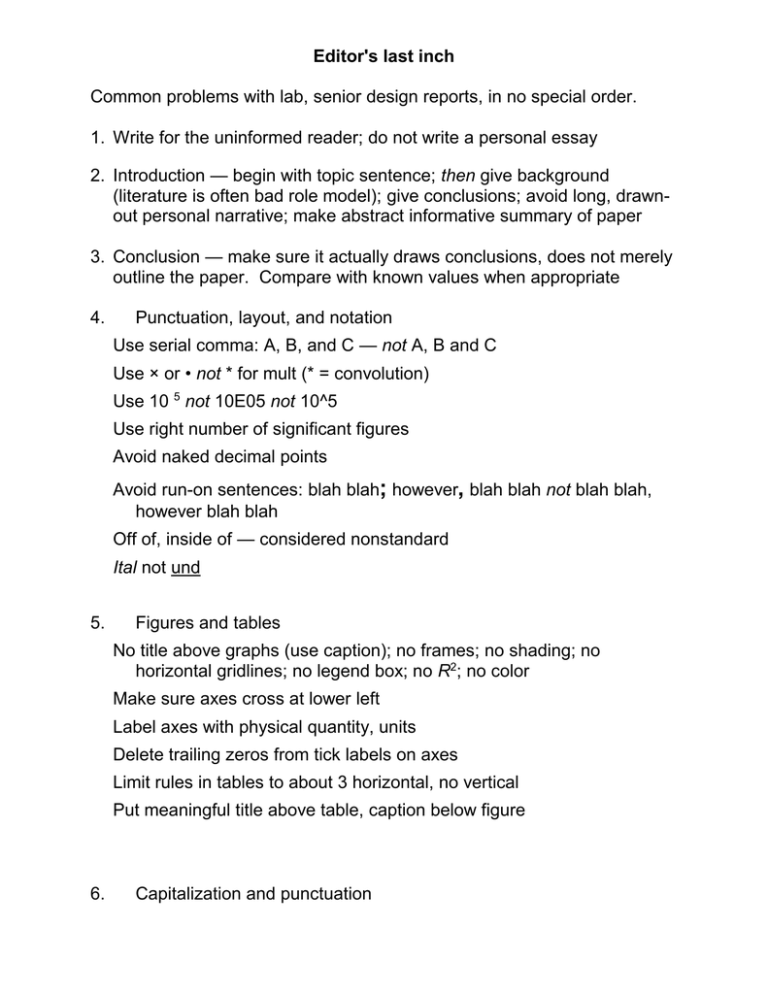
Editor's last inch Common problems with lab, senior design reports, in no special order. 1. Write for the uninformed reader; do not write a personal essay 2. Introduction — begin with topic sentence; then give background (literature is often bad role model); give conclusions; avoid long, drawnout personal narrative; make abstract informative summary of paper 3. Conclusion — make sure it actually draws conclusions, does not merely outline the paper. Compare with known values when appropriate 4. Punctuation, layout, and notation Use serial comma: A, B, and C — not A, B and C Use × or • not * for mult (* = convolution) Use 10 5 not 10E05 not 10^5 Use right number of significant figures Avoid naked decimal points Avoid run-on sentences: blah blah; however, blah blah not blah blah, however blah blah Off of, inside of — considered nonstandard Ital not und 5. Figures and tables No title above graphs (use caption); no frames; no shading; no horizontal gridlines; no legend box; no R2; no color Make sure axes cross at lower left Label axes with physical quantity, units Delete trailing zeros from tick labels on axes Limit rules in tables to about 3 horizontal, no vertical Put meaningful title above table, caption below figure 6. Capitalization and punctuation Cap only proper nouns (names) and trade names: detector circuit not Detector Circuit Usually no comma before paren: The dog (who ...) not The dog, (who ...) — in references, use 141-143 (1998) not 141-143, (1998) We ate and drank not We ate, and drank 7. Paragraphs — often not enough; indent paragraphs and skip line between them; watch equations: v= at , where a is acceleration, ... (no cap, no indent; you need to override MS [ugh] Word’s defaults) 8. Units and symbols — use symbols not complete spellings (minor exceptions): 10 K, not 10 kelvins and certainly not 10 Kelvin. Exceptions: a few amperes, a few kelvins Use ampere not Amp, kelvin not Kelvin (but A and K); micrometer not micron Use SI prefixes (m, n, M, k), not high powers of 10 — 10 MW not 107 W Avoid * for multiplication, ^ for exponentiation 9. References, documentation Reference must give complete bibliographic information, including title, last page (help reader find it!) Private communication not useful, esp without contact information; use Acknowledgements instead 10. Be less formal Said techniques, aforementioned report (lawyer's words!) Use There are not There exist or A framus exists that ... (but see circumlocutions) 11. Use will not would, esp in proposals (more forceful) The experiment would = The experiment will 12. After rinsing it, I would clean = After rinsing it, I cleanedThis without antecedent — I have tested a pump that works at 10–6 Torr. This is needed to... . (What? The pump, the pressure, or the testing?) 13. Dangling and misplaced modifiers Make sure that any -ing or -ed word that begins a sentence refers to the subject Partly assembled and dirty, I disassembled the pump By adjusting the initial conditions, a galaxy will form 14. Personal pronouns — avoid when not necessary: our voltmeter = the voltmeter. But use I or we to avoid a passive verb 15. Vogue words (words that are overused and often ambiguous) Determine = measure, calculate, decide — It was determined = We decided Create = write, design, build, draw Size = diameter, height Reasonable approximation (to whom?) — use good, fair, poor Issue (= problem), via (= by or by means of), as (for because), exists (= there is, but see circumlocutions), believe (≠ think ≠ feel), utilize (= use) 16. Circumlocutions and dead words Control of the experiment is accomplished [or done] by = The experiment is controlled by There is a pump that evacuates = A pump evacuates .... There is this dog that my sister has that I like to photograph (real!) Avoid able to, process, in the process of, proceeded to, purposes of, the use of, amount of, serves to, it can be seen (pointed out, shown) that, the reason for the change was (= because) 17. Enough already!
